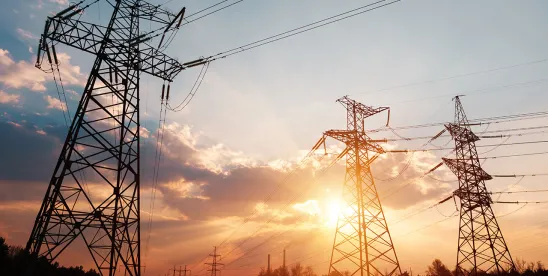On Tuesday, October 4, the U.S. Senate Committee on Energy and Natural Resources held a full committee hearing to discuss the status and future of energy storage technologies.
Committee Chairman Sen. Lisa Murkowski (R-AL) opened the hearing discussing the recent massive power outages caused by hurricanes in Puerto Rico, the U.S. Virgin Islands, Texas, and Florida. In the wake of these disasters, she emphasized consideration of energy storage technologies as part of grid reliability and resilience in rebuilding programs. Sen. Al Franken (D-MN) urged that a supplemental aid package assisting Puerto Rico and the Virgin Islands should be a bipartisan effort aimed at rebuilding grid infrastructure in a renewable and sustainable way, with energy storage technologies an important part of the solution.
The Committee heard testimony from Dr. Vincent Sprenkle, Technical Group Manager of Electrochemical Materials & Systems Group Pacific Northwest National Laboratory, Praveen Kathpal, Vice President of AES Energy Storage and Chair of the Board of Directors for the Energy Storage Association, Simon Moores, Managing Director of Benchmark Mineral Intelligence, and John Seifarth, Director of Engineering for Voith. (Please click here to access the speakers’ written testimony.) There was broad agreement among the speakers about recent breakthroughs in energy storage technologies and economics, including the rapidly falling cost of lithium-ion batteries; the increasing ability of cost-effective storage applications to provide grid and behind-the-meter services; and availability of new, advanced control electronics to improve functionality and reaction time of storage technologies.
The witnesses also discussed hurdles to widespread deployment that need to be overcome, in particular, limited market and regulatory structures that fail to value the benefits of storage in a given utility’s framework. Sen. Murkowski also voiced concern about the continued availability of low cost access to vital raw materials, noting that the U.S. currently imports one hundred percent of the minerals most essential to lithium-ion battery production.
Finally, Sen. Tammy Duckworth (D-IL) raised the Department of Energy’s (DOE) recent proposed rule that would direct the Federal Energy Regulatory Commission to redefine compensation methods for traditional baseload generators, promoting additional payments to coal and nuclear generators in compensation for perceived reliability and resilience benefits.
Praveen Kathpal of AES Energy Storage commented that DOE’s proposal takes a “relatively limited view given the various other resilience attributes that we think storage and other resources bring.” This exchange is likely to be the opening of a vigorous debate over the role of storage in the context of the DOE’s compensation proposal.
This post was also written by Kristin Hoeberlein.



 />i
/>i

